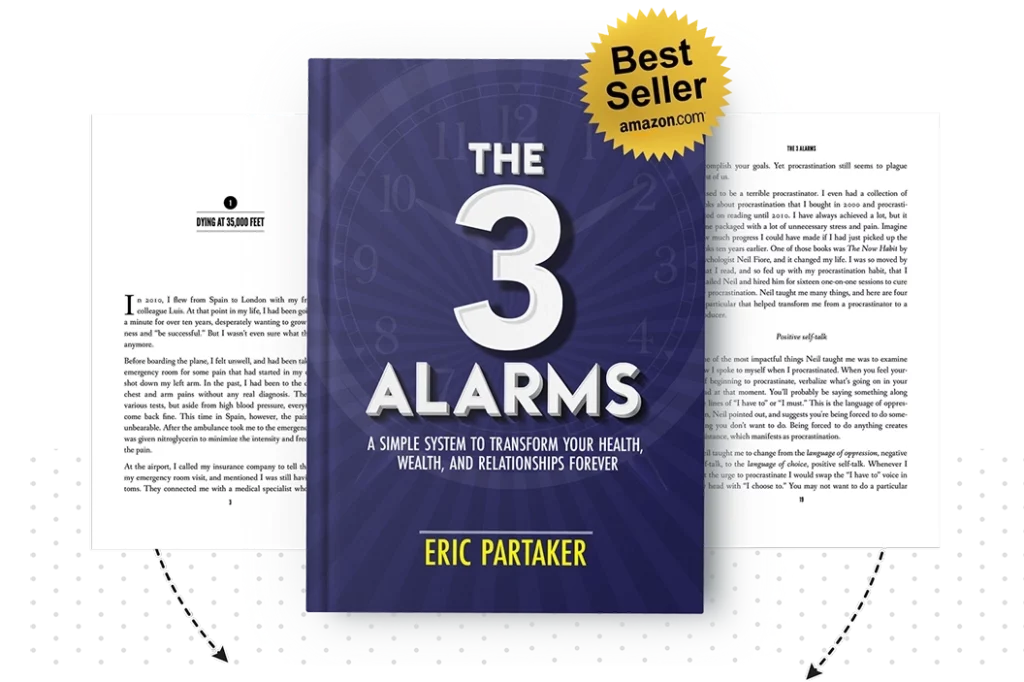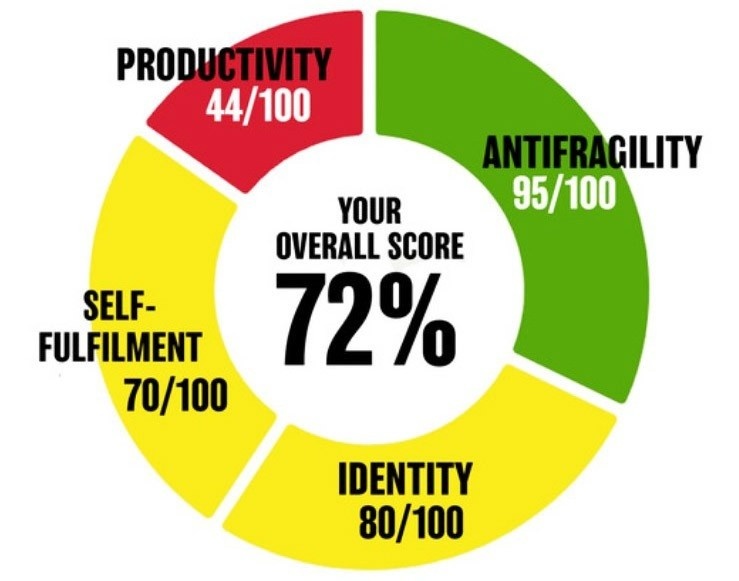If you’re reading this, there’s a good chance you want a better life.
Maybe you want to earn more.
Or maybe you want to get into better shape.
Perhaps you want to spend more quality time with your family.
Either way, self-improvement will help you close the gap between who you are and who you are capable of being. And one of the easiest ways to start closing this gap is by reading self-help books.
So in this article, I’m going to share some of the best self-help books that have been written by experts in their field and praised by thousands, as well as include my personal favorites that have helped me.
How Books Can Aid in Self-Improvement
Books are like cheat codes. You often get 10 years or more of someone’s experience, for a 10 hour investment of your time, for around $10. Whether you’re looking to fast forward your progress financially, emotionally, physically, or spiritually, there’s most certainly a book written by someone who’s done it before.
For instance, if you want to learn how to become a better negotiator, you might read Never Split The Difference by FBI hostage negotiator Chris Voss. You would be hard-pressed to find someone more credible than an FBI hostage negotiator to teach you about the intricacies of negotiation.
The same applies to fitness, maybe you’re interested in improving your physique quickly. The 4-Hour Body by Tim Ferris is designed to help you do exactly that. Tim Ferris is an investor, podcast host, author, and “lifestyle guru” who has extensively researched and experimented with his own body.
So, check out the recommendations below. I highly recommend saving the books on this list and reading them when you can.
My 11 Best Books for Self-Improvement
Books on Mindset
1. The Subtle Art of Not Giving a F*ck by Mark Manson

It’s hard to enter a bookstore without seeing this bright orange cover. And for good reason. Mark Manson, a renowned American self-help author and blogger, offers one of the most realistic and refreshing approaches to self-improvement in recent times by challenging the “relentless positivity” mindset. Instead of promoting positivity, Manson wants his readers to embrace challenges, failures, and uncertainty.
“The desire for more positive experience is itself a negative experience. And, paradoxically, the acceptance of one’s negative experience is itself a positive experience.” ― Mark Manson
One particular idea that stood out to me was Manson’s approach to happiness. According to the book, pursuing happiness creates unhappiness since it emphasizes what we lack. Instead, we should accept negative experiences as a natural part of life, which will result in more happiness.
2. The Secret by Rhonda Byrne

The Secret by Rhonda Byrne is a powerful self-help book that reveals the law of attraction. The idea is that we can achieve anything we want by first harnessing the power of positive thoughts and feelings.
The format differs from most self-improvement books, but the message is strong. Even Connor McGregor has praised The Secret and explained how the law of attraction is something he believes in. One of the main takeaways from this book is that you need to visualize and believe in the success you want before you can achieve it.
Everything starts in the mind.
3. The Four Agreements by Don Miguel Ruiz

The Four Agreements, a popular self-help book first released in 1997, draws upon the wisdom of the ancient Toltec civilization, a pre-Columbian Mesoamerican culture. The book lays out four fundamental principles for cultivating love and joy in one’s life. The Four Agreements are:
- Be impeccable with your word.
- Don’t take anything personally.
- Don’t make assumptions.
- Always do your best.
“Your best is going to change from moment to moment; it will be different when you are healthy as opposed to sick. Under any circumstance, simply do your best, and you will avoid self-judgment, self-abuse and regret.” ― Don Miguel Ruiz
While some self-improvement books only provide anecdotes to help drive their points home, The Four Agreements also provides concrete principles.
Books on Habits
4. Atomic Habits by James Clear

Whenever I hear the word ‘habit’ I automatically think of James Clear. Atomic Habits was a game changer for me, and I’m certain it will help you too. The book is a practical guide that illustrates how tiny changes in behavior can have significant results over time.
You can expect to learn to form good habits, break bad ones, and master the tiny behaviors that lead to remarkable results.
I still use the habit stacking strategy to easily form new habits by pairing them with existing ones. For instance, if you make tea before bed, you might as well fill up your water bottle (or a glass of water) and put it on your bedside table to build the habit of drinking more water in the morning.
5. The Power of Habit by Charles Duhigg

Like Atomic Habits, The Power of Habit by Charles Duhigg digs into the science of habits and how they can be changed. However, this book emphasizes that you must understand the nature of habit formation – and specifically the 3-part habit loop of a cue, routine, and reward – to exercise any control over them. In the process, Duhigg shares real-life stories to highlight the truth behind his points.
One of the first real examples is the introduction of brushing your teeth in society, which wasn’t common in the 1900s. By leveraging different parts of the habit loop, including a cool tingling sensation, and clever advertising by advertising guru, Claude Hopkins, brushing your teeth with mint toothpaste became a global habit. And this is just one example, there are dozens more that are fascinating.
6. The 7 Habits Of Highly Effective People by Stephen Covey

Without The 7 Habits of Highly Effective People, this list wouldn’t be complete.
The book explores the difference between character ethics and personality ethics. While both are important, Stephen Covey spends his time helping us develop our character traits to achieve sustainable success. This is done through the following seven habits:
- Habit 1: Be proactive
- Habit 2: Begin with the end in mind
- Habit 3: Put first things first
- Habit 4: Think win-win
- Habit 5: Seek first to understand, then to be understood (my favorite)
- Habit 6: Synergize
By the end of this book, you can expect to experience a paradigm shift and see the world through a different lens.
Books on Productivity
7. Deep Work by Cal Newport

For those looking to find focus and get the most out of their days, Deep Work by Cal Newport is a great option. Deep work is a state of intense, distraction-free concentration, which has become an increasingly rare and challenging skill in our digital age. The book is a blend of anecdotes, research, personal observations, and Newport’s own strategies for cultivating a deep work practice.
One of these practices is eliminating distractions by regularly detoxing from digital devices and social media. At first, this seemed like an easy task, but it can become frustrating for those who aren’t comfortable with boredom.
8. Essentialism: The Disciplined Pursuit of Less by Greg McKeown

As the title suggests, this book advocates removing everything that isn’t essential in your life. Greg McKeown suggests that by focusing on less but more significant tasks, we can regain control of our decisions, time, and life’s direction. As a result, we have more time to allocate toward achieving our goals.
“Sometimes what you don’t do is just as important as what you do.” ― Greg Mckeown
I will admit this book challenged my thinking, as there were many aspects of my life I was resistant to eliminating. However, the more I said “no” to the non-essential tasks, the more mental clarity and energy I had to focus on what truly mattered to me.
Books on Resilience
9. Do Hard Things by Steve Magness

Steve Magness is a performance expert and is the co-author of Peak Performance. In his recent book, Do Hard Things, Magness dissects resilience and why we get it wrong.
If you’re like me, you probably associate “toughness” with hard work, not complaining, and pushing through the struggle. However, Magness argues that real toughness is having the space to make the right decision under discomfort. Toughness is not about pushing through discomfort no matter what. There are four key pillars to help us navigate toughness:
- Pillar 1 – Ditch the Façade, Embrace Reality.
- Pillar 2 – Listen to Your Body.
- Pillar 3 – Respond, Instead of React.
- Pillar 4 – Transcend Discomfort.
10. Can’t Hurt Me: Master Your Mind and Defy the Odds by David Goggins

Unlike the other books on this list, Can’t Hurt Me is a raw and inspiring autobiography that showcases David Goggin’s transformation. David Goggins has been referred to as ‘The Toughest Man Alive’. He’s a retired Navy SEAL, ultramarathon runner, triathlete, and Guinness world record holder, author, and public speaker.
“It’s a lot more than mind over matter. It takes relentless self discipline to schedule suffering into your day, every day.” ― David Goggins
But Goggins didn’t always think this way, and before his impressive achievements, he was depressed, directionless, and overweight. When it comes to resilience, this is a book that demonstrates the limitless capabilities of the human mind and body. It will challenge you to overcome your own boundaries and unlock your inner strength.
11. The Obstacle Is the Way by Ryan Holiday

Ryan Holiday is an American author who has made Stoicism a popular practice in modern society. In this book, The Obstacle Is The Way, Holiday explores how we can turn obstacles into opportunities by referencing the ancient Stoic philosophy.
“There is no good or bad without us, there is only perception. There is the event itself and the story we tell ourselves about what it means.” ― Ryan Holiday
Holiday demonstrates that success often involves confronting challenges and harnessing them for personal and professional growth. Three core stoic principles are referenced – perception, action, and will. How we perceive an obstacle determines how we’ll react to it. With enough action and persistence, we can overcome the obstacle, and by cultivating our inner will, we have the ability to endure adversity.
How to Make the Most of These Books
Reading self-improvement books is only half the battle.
The other half is applying what you’ve learned and ensuring you take action.
Here’s how to make the most of these self-help books:
1. Take notes: As obvious as it sounds, you should still be taking notes when reading. Especially if a key point, idea, or quote resonates with you. This helps in remembering the content better and provides a quick reference guide for future use.
2. Take action: Take the initiative to implement the ideas you read from the books into your life. It’s impossible to improve without action. So start small if needed, but make sure you take action.
3. Revisit frequently: Books can be long and complex sometimes. There’s no pressure to remember and implement everything you read immediately. So don’t hesitate to re-read the book or a specific section you’re interested in.
4. Reflect: This can be done after each page, section, idea, or chapter. Pausing and reflecting on what you have just learned is always helpful. This will ensure you process the information better.
Summary
Self-improvement books are an incredible tool for personal growth. You’ll find insights, strategies, anecdotes, and motivating stories to move you closer to your goals. To some, this list may be overwhelming. So start small, choose one or two books, and do your best to apply the learnings in your daily life.
Frequently Asked Questions
This will depend on what you’re trying to improve. If you want to cultivate better habits, then Atomics Habits by James Clear is a great option. For those interested in improving their mindset, I would suggest The Four Agreements by Don Miguel Ruiz (which has sold over 12 million copies).
The short answer is yes. Self-improvement books are beneficial for personal growth and development. They provide insights, actionable strategies, and motivational stories that can offer new perspectives and inspire change in our lives. However, your commitment to applying what you learn to daily life is what drives transformation.
Yes, self-improvement books are worth reading. Some will resonate more with you than others, but I highly recommend selecting at least one book from this list and reading it.
Many books can make you a better person. However, two books stand out to me. The first is Deep Work by Cal Newport. This book will sharpen your focus and help you achieve more in less time. The other book I would highly recommend is Atomic Habits by James Clear. Habits shape our lives, and if you spend time cultivating positive habits, you’re inevitably going to become a better person.





